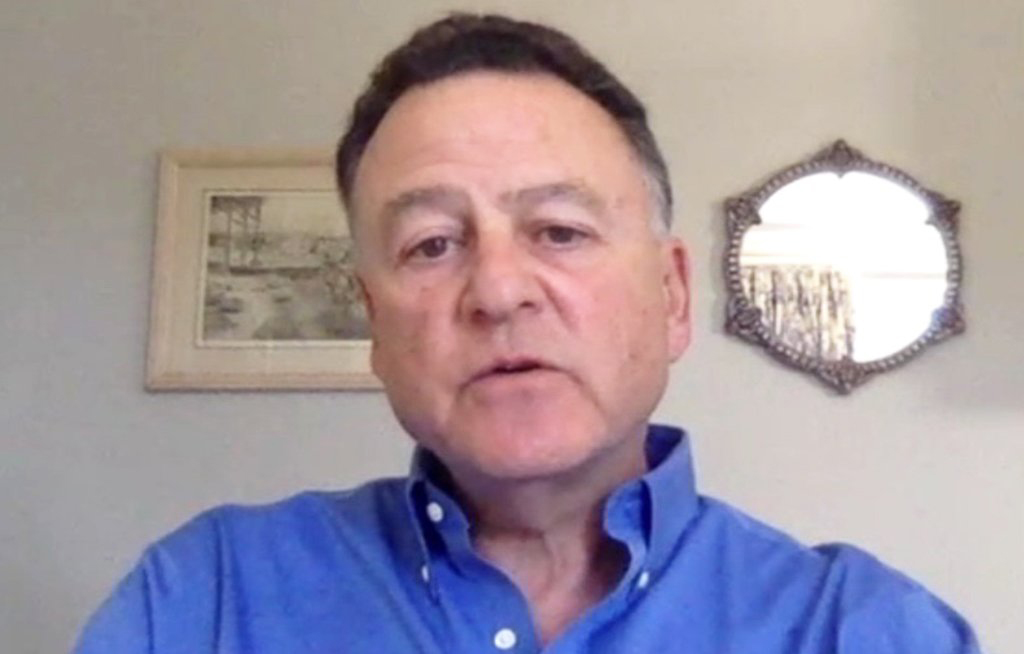
Featured Item

Ramaphosa “not our second chance, he’s our last hope”
South Africa has unreliable electricity, water scarcity, record unemployment levels, a lack of women in leadership positions, and two published state-capture reports showing wide-scale looting. Easy solutions are hard to find – this is the real state of the nation.
So said former Democratic Alliance leader Tony Leon, Professor Bonang Mohale, and billionaire businesswoman Magda Wierzycka, who spoke at a SA Jewish Report webinar titled “South Africa – this is the real state of the nation!” on 9 February 2022.
Never mind the past year, the week leading up to the webinar had been shape shifting in South Africa, said Leon.
He cited the “devastating” report on the July 2021 civil unrest, which according to Mohale, led to “More than 60 million South Africans having collective trauma, from which they haven’t recovered.”
The findings show the failure of leadership, “including in Ramaphosa’s office and his person”, said Leon.
“The second debacle over the past few days is the non-appointment of the chief justice, with scumbag politicians going after Dunstan Mlambo, an outstanding jurist who didn’t deserve that kind of revolting treatment,” he said.
The former South African ambassador to Argentina continued, “This attack on the judiciary and judicial officers is being fuelled by a senior member of Ramaphosa’s own cabinet, Lindiwe Sisulu, who attacked them from another perspective, talking about ‘house negros’, independent judges who happen to be black. The president has been largely silent on this matter. He needs to actually man up, and say, ‘Look, there have been some mistakes and failures on my watch.’”
Mohale, the president of Business Unity South Arica, described the African National Congress (ANC) as a “waning, corrupt, morally bankrupt, self-serving, self-indulgent, self-absorbed, rand-seeking, mostly rural, indecisive party, now best known for differing on key socio-economic issues with a tempestuous approach to policy”.
As for corruption, Sygnia Chief Executive Wierzycka said, “There’s functional corruption and dysfunctional corruption.”
The former, she said, was present in a county like China. “The government kind of strikes a little bit of a social contract with the population. The social contract is, ‘Let us steal what we want to steal, but we will make the economy work, we will create jobs, we will make sure that infrastructure works.’”
Dysfunctional corruption, on the other hand, can be found in South Africa and India, where, according to Wierzycka, “There’s just looting. There’s no giving back.”
Leon said Public Prosecutions Director Shamila Batohi hadn’t been successful in getting the corrupt behind bars. “Miss Batohi seems to be a snail. [Her predecessor], Shaun Abrahams, was a sheep. So, no one’s going to see – unless something dramatic happens – those who are responsible for the plundering of our resources going to jail.
“That puts the ANC in a very difficult position. Ramaphosa told us last August that he would rather be a weak president than preside over the disintegration of his party. But actually, you can’t move forward while the crooks, charlatans, and the RET [radical economic transformation] faction stay together with more mainstream constitutionalists such as Ramaphosa himself. It’s just not possible. Both are pulling in totally different directions. The electorate will react against that. It will do it either by staying away or by voting for an opposition party.”
Leon thinks the ANC won’t get more than 50% of the vote in the next general election.
“Ramaphosa is going to use the basic income grants to try and keep support or buy it,” Leon said. “But really, at R350 a month, you’ve got to be hard-pressed to have enormous gratitude to a government that delivers this as opposed to the national minimum wage of R3 500 a month, or even more than that. There’s a ten times differential between the legal amount you have to pay workers and the handout, as it were.”
Leon believes Ramaphosa can do nothing to address that, except further bankrupt the country.
“Ramaphosa isn’t our second chance, he’s our last hope,” said Mohale. “If we mess it up this time, we’re just going to be another failed African country. So, all indications are that come the ANC elective conference, he’ll be elected. I’m hoping that because it will be his second term in the ANC, he’ll go for broke, because instinctively, he knows what needs to be done. He’s yet to find his bite.”
Asked by the webinar’s host, Howard Sackstein, what prevented Ramaphosa from being the president we would love him to be, Mohale said, “Our problem has been the doing, the execution. If there was an Olympic sport about developing plans, South Africa will win hands down.”
According to Wierzycka, that’s not going to change. “The man we’re seeing is the man we’re going to see for the remainder of his term,” she said. “We’re pinning our hopes to the optics of the man. I think he’s charming. He has charisma. But will he make the hard decisions? Will he suddenly develop a strategy for the country? No.”
On a positive note, Wierzycka said, “There’s a heck of a lot of money waiting to be deployed into credible infrastructure projects.”
She talked about three such projects: “Independent power production will allow people to produce their own power and link to the grid. The second is water infrastructure. It’s one thing to deal with blackouts, it’s another to deal with no water, or the water being unfit for consumption, then you’re dealing with a humanitarian crisis on as massive a scale as the pandemic. The third would be transportation – fixing up railways, making ports more efficient, fixing roads, and potholes.”
Regarding the issue of blocking foreigners from coming to South Africa, Wierzycka said, “It’s horrific in terms of its implications because we should be importing skills. In fact, we’re in a position where we should be recalling from retirement those people who know how to maintain power stations.”










